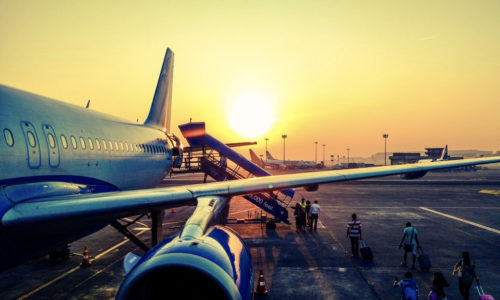Bali travel guide: Accommodation, food, travel tips and more

Bali, often referred to as the Island of the Gods, is a mesmerising and multifaceted island in Indonesia. This enchanting destination is celebrated for its breathtaking natural beauty, ranging from towering volcanic mountains to pristine beaches and exotic coral reefs.
Providing you meet the requirements to go to Bali, you can grab this useful guide and start planning the trip of a lifetime.
Explore Bali’s top regions and cities
Take a look at the top destinations to visit in Bali:
Ubud
Ubud, often considered the cultural and spiritual heart of Bali, is a captivating town that offers a unique blend of traditional Balinese culture and contemporary artistic expression. Surrounded by gentle rolling rice paddies and lush rainforests, Ubud is a haven for those seeking a deeper connection with nature and the arts.
A standout attraction in Ubud is the Sacred Monkey Forest Sanctuary, a dense jungle home to hundreds of playful and revered long-tailed macaques. This forest is not just a wildlife reserve but also a spiritual area, housing ancient temples under its dense canopy.
Seminyak
Seminyak stands out as the epitome of luxury and sophistication in Bali. This stylish area is a haven for those seeking an upscale experience, blending high-end comfort with the unique charm of Balinese culture. The streets of Seminyak are lined with designer boutiques offering everything from bespoke clothing to handcrafted jewellery.
The accommodation in Seminyak is predominantly luxurious, with a plethora of 5-star hotels, private villas, and boutique resorts. These establishments often feature exquisite Balinese design, lush gardens, private pools, and world-class amenities.
Kuta
Kuta is Bali’s most famous beach resort destination and is particularly renowned for its energetic atmosphere. Known as a hub for entertainment and leisure, Kuta is a magnet for travellers seeking fun and adventure.
The nightlife in Kuta is arguably the most vibrant on the island, with a plethora of bars, pubs, and clubs that stay lively until the early hours. This area is a hotspot for party-goers, offering a wide array of entertainment options, from live music venues to rooftop bars.
Nusa Dua
Nusa Dua is synonymous with luxury and tranquillity, a contrast to the bustling scenes of Kuta and Seminyak. This exclusive enclave is home to some of the most prestigious resorts in Bali, offering unparalleled service, elegance, and comfort.
The beaches in Nusa Dua are among the most beautiful on the island, characterised by crystal-clear waters and powdery white sand. These beaches provide a serene environment for relaxation and are well-suited for families and honeymooners seeking a peaceful retreat.
Accommodation in Bali
Bali’s accommodation options cater to every taste and budget. In Ubud, visitors can immerse themselves in tranquillity with yoga retreats and luxury villas nestled among serene rice paddies. These retreats often offer wellness programs, traditional spa treatments, and meditation sessions.
In contrast, Seminyak and Nusa Dua are known for their high-end resorts and beach front hotels. These areas provide a more cosmopolitan stay with modern amenities, infinity pools, private beaches, and upscale services. Guests can enjoy a blend of Balinese hospitality with international luxury standards.
For budget-conscious travellers, Kuta and Canggu are excellent choices. These areas are dotted with affordable hostels, guest houses, and budget hotels that offer comfortable accommodation without breaking the bank.
Bali’s rich cuisine
Balinese cuisine, with its rich and complex flavours, is an integral part of the island’s charm. The food is a delightful mix of Indonesian, Chinese, and Indian influences.
Sate Lilit, a unique Balinese satay made with minced meat, coconut, and a rich blend of spices, is a must-try. Nasi Campur, a mixed rice dish, and Ayam Betutu, a savoury slow-cooked chicken dish, reflect the island’s culinary diversity.
Street food in Bali is a culinary adventure in itself, offering delicious and affordable options. Local markets and street vendors serve up a variety of snacks and dishes, allowing travellers to taste authentic Balinese flavours. Ubud, in particular, is a haven for those seeking vegetarian and vegan options.
Attractions and activities
Pura Besakih, the largest and holiest temple on the island, offers insight into the spiritual life of the Balinese. For adventure seekers, Bali’s varied landscape offers white-water rafting, scuba diving in rich marine parks, and trekking opportunities such as the sunrise hike up Mount Batur.
Cultural experiences are abundant, with traditional Balinese dance shows providing a glimpse into the island’s artistic heritage. Ubud is particularly famous for its art scene, hosting numerous studios and workshops where visitors can appreciate the craftsmanship of local artisans.
Transportation
Navigating Bali can be an adventure in itself. Renting a scooter is a popular and flexible way to explore, but it requires cautious navigation through Bali’s often busy roads.
For those less inclined to drive, taxis and ride-sharing services like Grab offer convenient alternatives. For day trips or tours, hiring a private driver is a recommended option, combining convenience with local knowledge.
Local customs and etiquette
Understanding and respecting local customs and etiquette is crucial in Bali. When visiting temples, dressing modestly by covering shoulders and legs is essential.
Balinese culture values respect for others, so actions such as touching someone’s head or pointing feet towards people or sacred objects are considered disrespectful.
Small gestures, like using both hands to give or receive items, go a long way in showing respect for local customs.
Health and safety
Health precautions are important in Bali. Protecting against mosquito-borne diseases like Dengue Fever is essential, and travellers should take precautions like using mosquito repellent and wearing appropriate clothing.
The tropical sun in Bali can be intense, so sunscreen is a must. While Bali’s beaches are beautiful, some have strong currents, so caution is advised when swimming.
In terms of safety, Bali is generally safe for travellers. However, it’s important to be vigilant against pickpocketing, especially in crowded areas. Keeping valuables secure and being mindful of your surroundings can help avoid any unpleasant incidents.
Budgeting and currency
Bali is a destination that can be enjoyed on any budget. Accommodations range widely in price, from budget-friendly hostels and guest houses to luxurious resorts.
Eating out in Bali can be very affordable, especially if indulging in local street food or warungs, though there are also many mid-range and upscale dining options.
The local currency is the Indonesian Rupiah (IDR), and while currency exchange booths are abundant, using ATMs is generally a safer and more convenient option for withdrawing cash.
Language
Bahasa Indonesia is the official language of Bali, and while English is commonly spoken in tourist areas, making an effort to speak some basic Bahasa Indonesia phrases is appreciated.
Phrases like “Selamat pagi” (Good morning), “Terima kasih” (Thank you), and “Berapa harganya?” (How much is this?) can be particularly useful. Speaking even a little of the local language can enhance your travel experience, showing respect for the culture and often leading to friendlier interactions with locals.
The editorial unit
























Facebook
Twitter
Instagram
YouTube
RSS